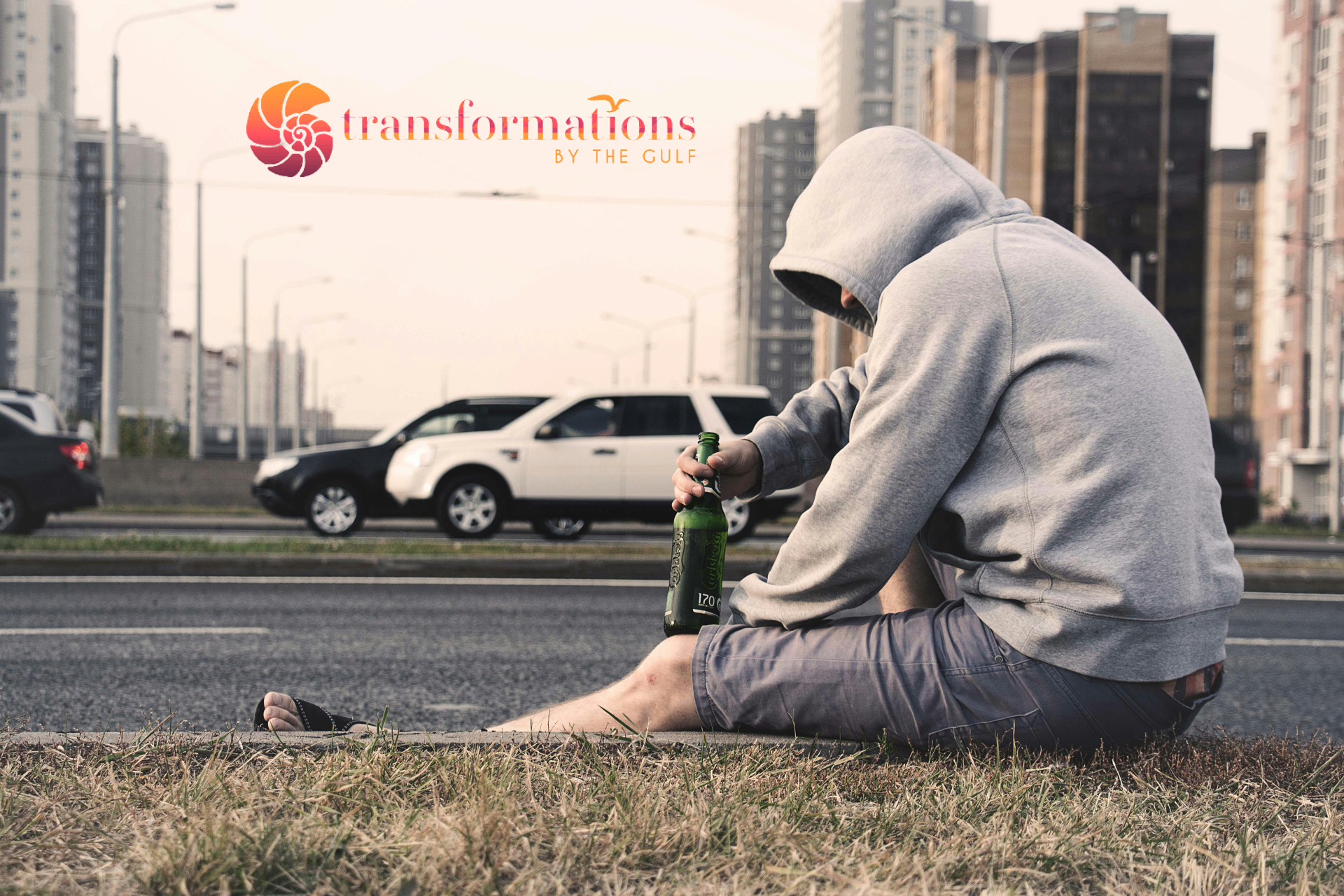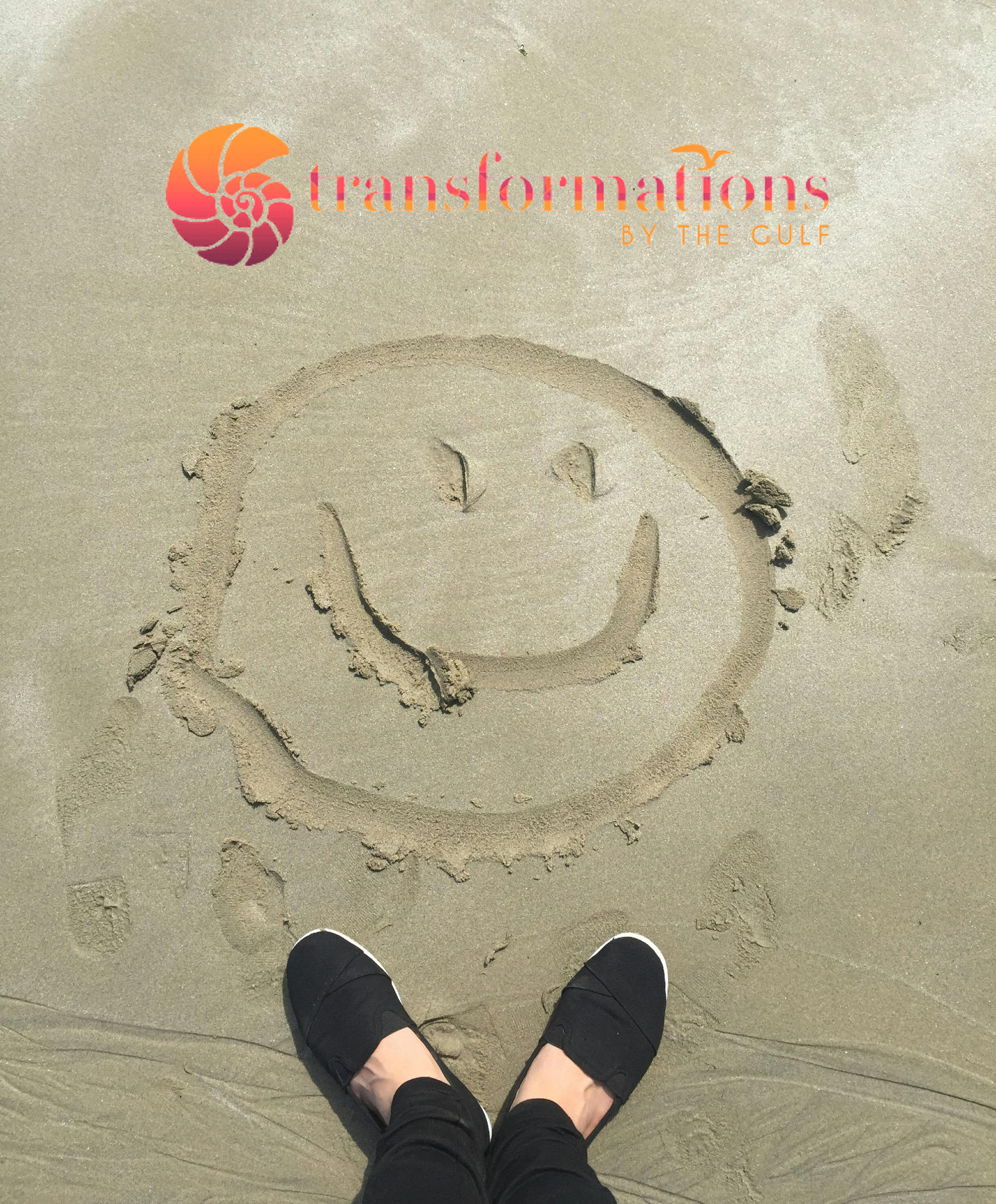Early Struggles After Rehab
Early Struggles After Rehab
Recovering from addiction is a difficult and brave process. Some people see rehabilitation as a quick fix for their issues, but it's important to recognize that rehab is only the initial phase in achieving lasting recovery. Adapting to post-rehab life and avoiding relapse demands continual dedication and perseverance.
Recovery Continues After Rehab
Rehabilitation programs offer a strong base for recovery, yet they do not ensure permanent sobriety independently. It is essential to recognize that recovery is a continuous journey that goes beyond the limits of a rehab center. Once finishing a rehab program, individuals need to actively strive for their ongoing recovery.
Post-Rehab Obstacles to Recovery
Social pressure poses a considerable obstacle in staying sober post-rehab. Individuals in social environments might unknowingly present drugs or alcohol, disregarding one's dedication to recovery. Additionally, there could be a tendency to stigmatize sobriety. To overcome this obstacle:
- Surround yourself with supportive friends and family who understand your goals and respect your sobriety.
- Communicate your boundaries and the importance of sobriety to those around you.
- Develop an exit strategy if you find yourself in a situation that compromises your recovery.
A feeling of Isolation After Rehab
After completing rehabilitation, people may feel isolated or lonely. They might need to establish new social connections or create distance from harmful influences. Dealing with isolation can be made simpler by following these steps:
- Engage in support groups or alumni programs where you can connect with others who have similar experiences.
- Seek out new hobbies or activities that promote social interaction and personal growth.
- Maintain regular communication with your therapist or counsellor to address any feelings of isolation and develop coping strategies.
Dealing with Mental Health After Rehab
Mental health issues often coexist with addiction. After rehab, it is essential to prioritize mental health and seek appropriate support:
- Establish a comprehensive aftercare plan that includes ongoing therapy or counselling sessions.
- Practice self-care techniques such as exercise, meditation, and maintaining a healthy routine.
- Reach out to mental health professionals who specialize in addiction and co-occurring disorders for additional support.
Rehab Alumni Programs
Post-rehab alumni programs provide ongoing support and connection for rehab graduates. By participating in these programs, individuals can enjoy benefits such as:
- Access to a supportive community that understands the challenges of recovery.
- Opportunities for ongoing education, workshops, and skill-building sessions.
- Mentorship from individuals who have successfully maintained sobriety.
Communicating with Friends and Family
Honest and open communication with friends and family is crucial in preventing relapse. Consider the following steps:
- Educate your loved ones about addiction and the challenges of recovery.
- Share your goals, triggers, and boundaries with those close to you.
- Seek their support and encourage them to participate in family therapy or support groups.
Try Out New Hobbies
Trying new hobbies and activities can provide a healthy outlet for emotions and help prevent relapse. Here is how:
- Explore activities that align with your interests and passions.
- Engage in physical activities or sports to promote physical and mental well-being.
- Cultivate new hobbies that stimulate creativity and promote personal growth.
Available treatment for after rehab
12-step programs offer a structured approach to recovery. These programs emphasize:
- Fellowship and support from individuals who have walked the same path.
- Accountability through regular meetings and working through the 12 steps.
- Spiritual growth and a higher power as a source of strength.
Individual post-rehab therapy
Individual therapy offers a safe environment to tackle particular obstacles and navigate deeper concerns. The advantages of individual therapy encompass:
- Tailored treatment plans designed to meet your unique needs.
- Identifying and addressing underlying emotional or psychological factors contributing to addiction.
- Developing coping skills and relapse prevention strategies.
Support groups for recovering addicts and loved ones
Support groups, such as Alcoholics Anonymous (AA) and Narcotics Anonymous (NA), offer a community-based approach to recovery. Benefits of support groups include:
- Peer support and shared experiences.
- Learning from others who have successfully navigated similar challenges.
- Building a network of support outside of formal treatment settings.
If you are using drugs or alcohol, you may have an addiction that requires professional help. At Transformations by the Gulf, we offer programs that let you continue on with your daily life by living at home but coming in for the treatment you need. Transformations by the Gulf provides a secure and supportive environment to address negative emotions and develop coping mechanisms essential for the recovery journey. If you or someone you know is struggling with an addiction to drugs or alcohol, call us today at (727)498-6498.
Being Supportive to an Addict After Rehab, are you struggling with addiction and want to learn more? Visit Rehab Path to read our reviews or check out our page on addiction treatments.
Coping Skills into Action
Coping Skills into Action
Coping typically entails adapting to or enduring unfavorable circumstances or situations as you strive to maintain your positive self-perception and emotional balance. Coping takes place within the framework of stressful life transitions. Psychological stress is commonly linked to adverse life events, like unemployment or the loss of a loved one. Nevertheless, all transitions necessitate some form of adjustment. Even positive changes, such as marriage or parenthood, can induce stress.
Experiencing numerous changes in a short span can be overwhelming, leading to a sense of losing control. This feeling can impact self-esteem and potentially lead to anxiety, depression, or exacerbate physical health conditions if one's ability to adapt to change is exceeded. Coping entails adapting to unfamiliar challenges or stressors, necessitating increased effort and energy compared to everyday routines. Prolonged exertion can lead to heightened levels of stress hormones and eventual physical health issues. Coping is necessary for stressors that can be immediate, such as relocating to a new residence or dealing with the beginning of marital issues. There are also stressors that last longer periods, like persistent pain, enduring illness, or ongoing financial struggles.
Experiencing multiple acute stressors in a short period can have a cumulative and significant impact. Individuals facing a marital separation, the death of an elderly parent, and a job change in quick succession may find it challenging to preserve their physical and emotional well-being.
What are some common coping strategies?
Some common coping mechanisms may challenge you to:
- Ask others to help or assist you.
- Challenge previously held beliefs that are no longer adaptive.
- Directly attempt to change the source of stress.
- Distance yourself from the source of stress.
- Engage in problem solving.
- Lower your expectations.
- Maintain emotional composure or, alternatively, expressing distressing emotions.
- Maintain emotionally supportive relationships.
- Take responsibility for the situation.
- View the problem through a religious perspective.
Experts concur that coping is a continuous process, not a one-time occurrence. It is beneficial to utilize various coping strategies to manage stress effectively. Individuals have diverse coping styles and may favor specific strategies. These variations often mirror their personality traits. Adaptable coping is more effective than rigid coping, as it allows for the selection of the most suitable strategy for each situation's requirements.
Some challenging situations can trigger similar coping reactions in most individuals. For instance, stressors related to work typically prompt problem-solving approaches. Stressors seen as modifiable are more likely to trigger problem-solving techniques, whereas those perceived as unchangeable are more likely to prompt seeking social support and emotion-focused strategies. To shield ourselves from stress and improve our ability to cope effectively, it is crucial to nurture emotionally supportive connections with others. Extensive research indicates that emotional support helps individuals mitigate the adverse effects of stress.
- Avoid use of caffeine and alcohol.
- Eat a well-balanced diet.
- Engage in pleasurable or fun activities every day.
- Exercise on a regular basis.
- Get enough good quality sleep.
- Practice relaxation exercises such as yoga, prayer, meditation or progressive muscle relaxation.
- Take brief rest periods during the day to relax.
- Take vacations away from home and work.
Learn more about coping skills into action. If you are using drugs or alcohol, you may have an addiction that requires professional help. At Transformations by the Gulf, we offer programs that let you continue on with your daily life by living at home but coming in for the treatment you need. Transformations by the Gulf provides a secure and supportive environment to address negative emotions and develop coping mechanisms essential for the recovery journey. If you or someone you know is struggling with an addiction to drugs or alcohol, call us today at (727)498-6498.
Being Supportive to an Addict After Rehab, are you struggling with addiction and want to learn more? Visit Best-Rehabs.com to read our reviews or check out our page on addiction treatments.
How Does Social Media Influence Addiction?
HOW DOES SOCIAL MEDIA INFLUENCE ADDICTION?
The increasing prevalence of smartphones has led to a rise in social media usage. Nowadays, it's not just teenagers who are using social media to connect with friends. Adults are also utilizing these platforms to share photos, update their friends on their lives, and reconnect with old acquaintances. If you are struggling with addiction, you may question whether social media is affecting your substance use. Being influenced by others through these platforms can potentially jeopardize your well-being. Transformations by the Gulf understands the correlation between social media and addiction and emphasizes the importance of seeking help from the right source.
WHAT IS THE LINK BETWEEN SOCIAL MEDIA AND ADDICTION?
Seeing content on social media can significantly influence your views on drug and alcohol use. Consider a scenario where a stay-at-home mom views posts of her friends unwinding with a glass of wine after a hectic day with their children. These posts portray the wine as a relaxing escape and emphasize its positive effects. However, the concern arises from the potential health hazards associated with even moderate alcohol intake, like consuming just one glass of wine daily.
Celebrities, social media influencers, and acquaintances often share photos of themselves enjoying alcohol or drugs, appearing happy and content. This could inspire you to replicate their actions in search of similar fulfillment. It's vital to keep in mind that social media offers a limited perspective, with individuals presenting a curated version of their lives that may not reflect reality accurately. This can lead to misleading perceptions and promote risky behaviors like substance use. Exercise caution when consuming social media content and avoid allowing it to impact your choices regarding drugs or alcohol.
SOCIAL MEDIA CAN IMPACT YOUR MENTAL HEALTH
Recognizing the significant influence of social media on mental well-being is essential, especially regarding addiction. Continuously observing others enjoying themselves and appearing to lead fulfilling lives while you face daily challenges can be distressing. This ongoing comparison may lead to the emergence of diverse issues, including:
- Depression
- High-stress levels
- Anxiety
- Self-doubt
- Issues with self-worth
Recognizing the significant influence of social media on mental well-being is essential, especially regarding addiction. Continuously observing others enjoying themselves and appearing to lead fulfilling lives while you face daily challenges can be distressing. This ongoing comparison may lead to the emergence of diverse issues, including:
DO YOU SEE YOURSELF STRUGGLING WITH SOCIAL MEDIA AND ADDICTION?
It’s not uncommon to find yourself simply unable to handle social media and addiction or addiction on its own. That’s why it is so important for you to take action today. If you are using drugs or alcohol, you may have an addiction that requires professional help. At Transformations by the Gulf, we offer programs that let you continue on with your daily life by living at home but coming in for the treatment you need. Transformations by the Gulf provides a secure and supportive environment to address negative emotions and develop coping mechanisms essential for the recovery journey. If you or someone you know is struggling with an addiction to drugs or alcohol, call us today at (727)498-6498.
Being Supportive to an Addict After Rehab, are you struggling with addiction and want to learn more? Visit Best-Rehabs.com to read our reviews or check out our page on addiction treatments.
Types of Addiction Aftercare
Types of Addiction Aftercare
Many aftercare programs for addiction exist, offering different options in terms of intensity, setting, staffing, and duration of treatment. The most suitable aftercare program for you will be determined by your specific symptoms, requirements, and condition post-completion of an initial rehab program.
Sober Residences
People who began treatment with inpatient services may find sober residences to be a suitable aftercare choice. Sober living arrangements are particularly beneficial for individuals in precarious home environments or those lacking solid support post-treatment. Aftercare options encompass sober residences.
- Therapeutic communities: Structured programs that typically span 6 to 12 months. In these programs, staff and residents collaborate to achieve and sustain recovery. The treatment aims to assist individuals in shifting negative beliefs and harmful patterns, while also providing educational, vocational, and various other forms of support.
- Recovery housing: Provides short-term, supervised accommodation for individuals in recovery. They offer fewer intensive services aimed at linking residents to external resources as they move towards self-sufficiency.
- The social model: Commonly known as sober living, does not involve formal treatment or professional staff in the residence. In this setting, residents depend on one another for support and direction. Typically, individuals living in sober homes are expected to work to cover expenses and participate in external treatment programs.
- Residential re-entry centers: Commonly known as halfway houses, cater to individuals in recovery who are part of the criminal justice system. They bear resemblances to sober-living houses but offer greater structure and accountability.
Outpatient Aftercare Therapy
Outpatient treatment programs enable clients to receive treatment during the day and go back home at night. This arrangement is ideal for individuals who have work commitments, childcare duties, or a strong support system that facilitates recovery without the full-time involvement required in residential treatment. The intensity of outpatient aftercare can be adjusted based on changing needs. Various options are available:
- Partial hospitalization programs (PHP): The most intense outpatient treatment that includes services 5 days a week for 4-6 hours a day. This will include individual and group therapy.
- Intensive outpatient programs (IOP): With appointments two or more times per week that last for 3 hours, IOP can focus on addiction and mental health care.
- Individual and/or group addiction therapy: Regularly scheduled hour-long sessions that occur weekly, biweekly, or monthly.
Support Groups
Support groups and social networks provide individuals in recovery from addictions with the essential ongoing encouragement and support necessary to sustain their sobriety in the long run. Types of Addiction Aftercare are important. These groups consist of individuals who are currently navigating or have faced similar challenges, enabling mutual assistance. These aftercare alternatives encompass:
- 12-step groups: Build fellowship and a drug-free social network, placing emphasis on a higher power to achieve and maintain sobriety. Common 12-step groups include Alcoholics Anonymous, Narcotics Anonymous, Women in Sobriety, SMART Recovery, and more.
- Non-12-step groups: For people recovering from addiction who prefer a secular (non-religious or non-spiritual) approach to aftercare.
- Peer recovery support network: Offering case management and peer support services provided by someone in recovery to encourage ongoing recovery goals.
- Adolescent programs: Provide specialized support focused on social skills and self-esteem issues often related to teens and young adults staying sober.
Some individuals persist in participating in aftercare groups like these to provide assistance to newcomers embarking on their recovery journey. Meanwhile, others opt to join meetings for ongoing reinforcement of their recovery efforts and to stay engaged with the supportive community they are part of.
Alumni Programs
Returning to society after rehab may present challenges, but alumni programs can provide valuable support. These programs aim to assist individuals in sustaining their sobriety post-treatment. Although these programs vary, they typically provide resources like educational materials, job support, and contact details for counselors and medical professionals. A key advantage of alumni programs is the opportunity to engage with fellow individuals who have gone through similar treatment journeys. Many alumni initiatives organize social gatherings and promote ongoing communication among members for continued encouragement.
Why Is Addiction Aftercare Important?
Continuing treatment is crucial because prolonged substance abuse can modify brain function, with some changes persisting even after use stops. The physical and psychological effects of addiction, including lasting alterations in thoughts, emotions, and behaviors, emphasize the necessity of extended treatment to address potential long-term impacts on mental and physical well-being.
Addiction treatment, while effective, often results in relapse given the inherent challenges of addiction. Post-treatment, individuals may find it difficult to manage daily stressors in a constructive manner. Engaging in an addiction aftercare program can serve to strengthen the coping mechanisms acquired during recovery, aiding in the maintenance of sobriety. Those familiar with addiction's isolating and lonely nature, particularly post-treatment, can benefit from aftercare by establishing a supportive network conducive to sustaining positive behaviors and habits. Types of Addiction Aftercare is important.
Individuals transitioning out of rehab face a challenging path towards recovery. Their journey may involve a seamless transition into a regimen of diet and exercise, alongside necessary lifestyle adjustments. Alternatively, they may encounter difficulties, experience setbacks, and need to return to therapy. Providing consistent support throughout this process demands effort, love, and dedication. It is crucial to focus on understanding and being mindful of your loved one's requirements, rather than simply taking actions on their behalf. Transformations by the Gulf provides a secure and supportive environment to address negative emotions and develop coping mechanisms essential for the recovery journey. If you or someone you know is struggling with an addiction to drugs or alcohol, call us today at (727)498-6498.
Being Supportive to an Addict After Rehab, are you struggling with addiction and want to learn more? Visit Best-Rehabs.com to read our reviews or check out our page on addiction treatments.
Being Supportive to an Addict After Rehab
Being Supportive to an Addict After Rehab
Struggling with a substance use disorder may feel like the end of one's life, particularly for those who have reached rock bottom. Rehabilitation offers a fresh start, a chance to embrace life without substances, and often entails a challenging journey. Entities like SAHMSA highlight family and social support as key drivers in inspiring individuals to pursue sobriety and in supporting them during their recovery journey. While you cannot make decisions for your loved one or prevent relapses through control, your presence and support throughout the process are invaluable. This support is crucial. However, due to generations of misinformation and widespread misconceptions about addiction, understanding how to provide effective support can be challenging. Loved ones of individuals struggling with addiction face a tough road, which involves forgiving past transgressions, rebuilding strained relationships, and adapting to new dynamics. The long-term outcome hinges significantly on the individual, the nature of your relationship with them, and their commitment to change. Nonetheless, the forthcoming guidance aims to assist you in offering post-rehabilitation support.
Accept Change
People are transformed by their life experiences. Are you wondering what it's like Being Supportive to an Addict After Rehab. It's impossible to go through a significant trauma and emerge unchanged. This is particularly evident for individuals grappling with substance use disorder (SUD). SUDs lead to alterations in brain neural pathways and chemical balance. Although these can potentially revert over time and with prolonged abstinence, they will never fully return to their original state. While individuals can heal, they can't start over from scratch. After completing rehabilitation, they will have undergone addiction, behavioral therapy, and training to develop new coping strategies. They may also carry trauma related to relationships, violence, stigma, and guilt. Acknowledging that they will be different, rather than expecting them to revert to their former selves, is crucial. This acknowledgment provides individuals with the space to reconstruct their identity without the pressure to return to their previous life.
Keep Learning
Understanding addiction is crucial when dealing with a loved one who is struggling with this behavioral disorder. By educating yourself on addiction and its effects, you can better comprehend your loved one's challenges. Just like bipolar disorder or depression, addiction deeply impacts them. While recovery is possible, the lasting effects of the disorder persist. Educating yourself on addiction will guide you in making treatment decisions, responding appropriately, and interpreting their behaviors. Moreover, your loved one likely faces physical and mental health challenges due to substance abuse. Those who have completed rehab often experience nutritional deficiencies, emotional numbness, anxiety, depression, trauma, gastrointestinal and liver damage, among other issues. Learning about these challenges and supporting your loved one in managing them can greatly assist them in their journey to a healthier life. Being Supportive to an Addict After Rehab.
Make Adjustments for Their Lifestyle
Individuals transitioning out of rehabilitation must implement lifestyle changes to maintain their recovery. Some adjustments are foreseeable, such as refraining from alcohol initially and abstaining from its consumption later on. Conversely, other modifications may be less evident at the outset, necessitating increased effort for those seeking to offer assistance and support.
Substances – To minimize exposure to substances, attend events and gatherings that are alcohol-free, and refrain from socializing with individuals who may be unsupportive or encourage your loved one to drink or use substances in the presence of others.
Diet – Recovering addicts are typically encouraged to follow a balanced diet, steer clear of overeating, and develop cooking skills to look after themselves attentively. Nutritional therapy plays a crucial role in aiding individuals in overcoming alcohol use disorder by facilitating brain and body recovery while averting depression and anxiety stemming from nutritional gaps. Cultivating cooking discipline and creativity with food can be beneficial during the recovery process. Support can be provided, dietary adjustments can be made as necessary, and shared meal preparation can be a fun and supportive activity if residing together.
Exercise – Addicts are typically encouraged to participate in light exercise for at least 30 minutes a day, five days a week. Developing a routine of physical activity can boost energy levels, enhance mood, reduce cravings, foster self-discipline, and aid in the recovery process. Engaging in exercise programs, participating actively, and striving to make workouts enjoyable and social can provide valuable support for your loved one.
Get Help
Coping with addiction can be challenging and frequently traumatic. Substance abuse alters the dynamics of family structure, causing harm to relationships and fostering detrimental behavior patterns from various angles. Numerous individuals struggle to navigate the enduring impact addiction can have on their relationships without external support. It is crucial to conduct a candid assessment of your relationships and to access professional assistance as necessary. Family therapy is commonly integrated into rehabilitation programs, and is also accessible independently. Participation in family therapy may involve other family members, the individual in recovery, or solo sessions, with most programs mandating a combination of these approaches.
You can also seek out social support in the form of self-help groups like Al-Anon and SMART Recovery, which function to offer support, information, and services for the family members of addicts.
Offer Nonjudgmental Listening
Regardless of where your loved one is in their recovery journey, it is crucial for them to feel comfortable discussing their experiences and sharing them with others. While many individuals may eventually seek support from self-help groups and therapists, it is equally important for them to be able to confide in those they hold dear. Nonjudgmental listening involves attentively listening to others without passing judgment or having preconceived notions. For instance, your loved one might wish to discuss their cravings and the temptation to use substances or alcohol again. You do not need to comprehend their feelings entirely to provide a listening ear and offer encouragement. Simply offer to engage in conversations, be there to listen when they need to talk, and lend an ear if they want to discuss cravings, setbacks, or seeking assistance. Often, you do not need to offer any words of advice; just being present, listening attentively, and responding appropriately to the situation is sufficient.
Individuals transitioning out of rehab face a challenging path towards recovery. Their journey may involve a seamless transition into a regimen of diet and exercise, alongside necessary lifestyle adjustments. Alternatively, they may encounter difficulties, experience setbacks, and need to return to therapy. Providing consistent support throughout this process demands effort, love, and dedication. It is crucial to focus on understanding and being mindful of your loved one's requirements, rather than simply taking actions on their behalf. Transformations by the Gulf provides a secure and supportive environment to address negative emotions and develop coping mechanisms essential for the recovery journey. If you or someone you know is struggling with an addiction to drugs or alcohol, call us today at (727)498-6498.
Being Supportive to an Addict After Rehab, Are you struggling with addiction and want to learn more? Visit Yelp to read our reviews or check out our page on addiction treatments.
Mindful Breathing to Reduce Stress
Mindful Breathing to Reduce Stress
Focusing on your breathing is one of the easiest yet most effective ways to alleviate stress. While numerous books delve into this topic, the suggestions below can serve as a helpful starting point for you. Given that breathing is a constant activity, you will have ample chances to hone this technique!
Less is More
The first and most crucial step in reducing stress is to breathe less through your nose while maintaining a regular breathing pattern. Initially, taking a deep breath or two can help you start practicing breath control. Focus on breathing regularly but at a slower pace with less air volume after these initial breaths. While you may not instantly decrease your breathing rate, with practice, it will likely decrease gradually over several breaths. Through consistent practice, you may achieve a breathing rate as slow as 6 breaths per minute (one every 10 seconds) and inhale less air in the process. Breathing in this manner can significantly reduce feelings of anxiety, making it less likely for you to feel anxious. For many individuals, this initial step leads to a noticeable and satisfactory decrease in anxiety levels.
Breathe Like a Baby
Many of us find it uncomfortable to push the diaphragm downward towards the pelvis, causing the abdomen to protrude. However, even a slight movement in this direction can greatly aid in mindful breathing. Learning this diaphragm movement can be difficult for some individuals. Techniques such as pushing against your waistband, lying down with a book on your abdomen as it rises and falls with each breath, or leaning forward while seated and focusing on diaphragmatic breathing can help with this process.
Take It Down
When practicing diaphragmatic breathing, concentrate on drawing your breath into your lower back, where the lungs reach further down. This emphasis will strengthen your diaphragmatic breathing and reduce the reliance on your chest.
Stop Breathing
Many people are accustomed to the typical breathing pattern of inhaling and exhaling. However, you may benefit from integrating a brief pause between breaths, as in the 4-square breathing technique. With this method, you inhale, pause, exhale, pause, allocating 4 to 5 seconds for each phase. One advantage of incorporating a pause between breaths is the opportunity for complete relaxation, as you do not need to hold your breath during the subsequent pause. When practicing this technique while lying down, you can achieve total relaxation of all voluntary muscles during the pause. Over time, with consistent practice, the duration of the pause can extend to several seconds, resulting in a reduction of breathing frequency to just a few breaths per minute or even less. For inspiration, consider exploring the abilities of experienced breath practitioners such as yogis or deep-sea divers who have honed the art of mindful breathing.
Breaking it Down
Breathe less air through your nose, take slower breaths, focus on using your diaphragm instead of your chest, draw your breath down to your lower back, and pause briefly after each exhale. This video effectively showcases these practices.
Breaking it Down
Even if you have mastered the mindful breathing techniques, they will not be effective unless implemented. Consider setting alarms on your phone as a reminder to practice breathing exercises. Connect your breathing routine to various activities such as reaching for your phone, transitioning between tasks throughout the day, or during moments of pause in between activities (e.g. logging in, waiting at a stoplight, or waiting for someone to answer the phone). Making small adjustments to your stress levels throughout the day can contribute to improved well-being by day's end, reducing the urge to seek alternative methods for relaxation.
Instead of solely dwelling on self-criticism, consider the circumstances surrounding your actions. Given the same scenario, personal background, and triggers, would another person have made a similar choice? Reflect on what insights you gain about yourself. Avoid black-and-white thinking. A decision that wasn't optimal likely wasn't entirely flawed. Embracing decisions, facing outcomes, and evolving through this journey shapes our growth into responsible adults. If you or someone you know is struggling with an addiction to drugs or alcohol, call us today at (727)498-6498.
Are you struggling with addiction and want to learn more? Visit Psychology Today or check out our page on addiction treatments.
Coping with Regret in Recovery
Coping with Regret in Recovery
Regret is the feeling that arises when we believe we could have made better choices or actions. It is common to question ourselves with phrases like "why did I...?" or "why didn't I...?" Given that making mistakes is inevitable, it is likely that we will experience regret frequently. Research indicates that approximately 1/3 of our decisions may lead to feelings of regret. Instead of striving to evade regret, it is advisable to focus on managing and processing regret.
Two Types of Regret
There appear to be two primary forms of regret. One might regret failing to fulfill obligations to others. Upon recognizing the issue, it could be relatively simple to rectify one's actions or seek reconciliation. Conversely, do you exert a comparable effort when you falter in pursuing your aspirations and objectives? Lingering regret is often a result of neglecting to chase after your dreams and goals, rather than falling short on your duties. Over time, we typically regret more the things we neglected to do, rather than the actions we took.
How to Cope with Regret Now?
Can we utilize it effectively instead of getting lost in regret, guilt, and shame? Consider the following suggestions: Embrace regret instead of avoiding it. Embracing it can provide a chance for growth. Instead of dwelling on "if only," can you adopt a mindset of "this time" or "next time"? Many regrettable decisions or choices may recur in the future.
Instead of solely dwelling on self-criticism, consider the circumstances surrounding your actions. Given the same scenario, personal background, and triggers, would another person have made a similar choice? Reflect on what insights you gain about yourself. Avoid black-and-white thinking. A decision that wasn't optimal likely wasn't entirely flawed. Embracing decisions, facing outcomes, and evolving through this journey shapes our growth into responsible adults. If you or someone you know is struggling with an addiction to drugs or alcohol, call us today at (727)498-6498.
Are you struggling with addiction and want to learn more? Visit Psychology Today or check out our page on addiction treatments.
Nurses Struggling with Substance Abuse
Nurses Struggling with Substance Abuse
Nurses often experience high levels of stress, work long hours, and must make critical decisions that can impact lives. It is common for many nurses to express dissatisfaction and a feeling of being undervalued in the workplace, which can hinder their job performance. The easy availability of powerful prescription medications presents a risky temptation for nurses, increasing the likelihood of substance abuse and potentially jeopardizing the safety and health of their patients.
THE PREVALENCE OF NURSE SUBSTANCE ABUSE
Nurses, like numerous other professionals, are vulnerable to stress and burnout, leading to potential substance misuse. Their responsibilities are strenuous, frequently involving extended shifts and managing critical, high-stress scenarios. Certain nurses who experience substance abuse concerns may begin to explore alcohol and drugs during their nursing education. The demanding workload and extended hours further contribute to the challenges of the nursing profession. Faced with emotional strain and physical fatigue, many nurses turn to drugs as a misguided method of self-treatment.
THE IMPACT OF NURSES UNDER THE INFLUENCE
Compassion fatigue occurs when a nurse becomes deeply involved in their patients' pain and neglects their self-care. This issue can lead to some nurses developing harmful coping mechanisms, such as alcohol and drug use. Substance abuse presents significant and unique challenges in the nursing field. Nurses who use drugs while on duty are less likely to deliver safe and competent care, putting the individuals under their care at risk. A nurse grappling with a drug problem may inadvertently harm their patients or jeopardize their well-being. A specific challenge is drug diversion, where nurses misuse medications meant for their patients. This illicit behavior not only jeopardizes the health of nurses but also deprives patients of essential drugs needed for recovery.
HIGH-FUNCTIONING ADDICTION: UNMASKING THE MYTH
When envisioning individuals facing substance abuse challenges, the common image is of someone whose life appears visibly chaotic. However, this perception is misleading. Many people struggling with addiction are able to uphold a facade of normality, maintaining demanding professions such as nursing while fulfilling their work responsibilities – a phenomenon often described as "high-functioning" addiction. Regrettably, this notion is a risky misconception. Even if a nurse appears to have everything in order outwardly, they are still grappling with a severe, life-threatening issue behind closed doors. Nurses are particularly vulnerable to the physical, psychological, and social consequences of substance abuse. The apparent sense of normality can impede the identification of the problem and discourage nurses from seeking the necessary assistance.
RECOGNIZING AND ADDRESSING NURSE SUBSTANCE ABUSE
Recognizing and intervening promptly is essential to protect patients and support nurses in their path to recovery. Creating a workplace environment that encourages nurses to seek assistance for their challenges without worrying about stigma or repercussions is vital. Addiction can have a negative impact on your self-esteem, but there are numerous healthy methods to boost your confidence and lead a happier, healthier life. Whether it's forgiving yourself for past mistakes or consistently prioritizing self-care, these simple yet effective strategies can aid you on your path to recovery. Transformations by the Gulf provides top-notch addiction treatment services in the Gulf Coast of Florida, catering to a wide range of substance use disorders. We offer tailored care to best support your recovery journey, ensuring you receive the assistance you need without fear or shame. Reach out today to discover how we can assist you in your recovery. If you or someone you know is struggling with an addiction to drugs or alcohol, call us today at (727)498-6498.
Are you struggling with addiction and want to learn more? Visit Psychology Today or check out our page on addiction treatments.
What is Polysubstance Abuse?
What Is Polysubstance Abuse?
Polysubstance abuse involves using three or more drugs to achieve a high. Combining substances is extremely risky and should be avoided. If you mix multiple drugs, a substance abuse treatment program can aid in controlling your emotions without relying on substances. Transformations by the Gulf provides various treatment options for those with polysubstance use disorder. Contact (727)498-6498 to begin your journey to sobriety.
How Are Users Identified as Polysubstance Users?
A polysubstance user engages in the concurrent use of at least three different types of drugs or combines two drugs with alcohol. Within one year of initiating use, an individual must exhibit a minimum of three of the symptoms listed below:
High Tolerance
Often, users will need greater doses to feel the influence of the drugs they are using. This will cause them to use more of the drug than they first began using:
Participating in Self-Harm
Abusing multiple drugs is extremely dangerous. If someone experiences harm due to drug abuse and does not seem to care, this indicates a greater problem.
Avoiding Withdrawal Symptoms
When individuals cease drug usage, they frequently undergo painful withdrawal symptoms. Users of multiple substances may consume drugs to avoid experiencing these symptoms. Increased drug consumption suggests a serious addiction. The significant amount of time spent obtaining and using drugs hinders their ability to maintain control over their lives, rendering them incapable of being accountable for themselves or others.
- Inpatient detox
- Residential rehab
- Sober living
No matter how hopeless you feel, we want you to know that recovery is possible. A supportive sober network can make a colossal difference in a person’s addiction recovery journey.
Why Do People Combine Substances?
Substance use disorders frequently stem from individuals seeking to manage their emotions. Excessive drug abuse can signal underlying severe depression or anxiety, where individuals seek increased relaxation or energy. The subsequent addiction treatment programs can aid in fostering recovery:
What Are the Dangers of Polysubstance Abuse?
Substance use disorder poses significant risks as users become more reckless, particularly when under the influence. Following a high, individuals are more inclined to engage in risky behavior to obtain and consume their preferred drug. Polysubstance users face even greater dangers. The following are some of the hazards associated with polysubstance abuse:
Severe Side Effects
When someone combines various drugs, each substance’s reaction will be different. In addition, documented side effects include vomiting, lack of coordination, fluctuating heart rate, high blood pressure, trouble breathing, and recurrent body pain.
Mental Health Challenges
If a polysubstance user is also affected by mental health issues, it can often have a negative impact on the disorder.
Overdose
Using multiple drugs increases the risk of overdose significantly. This occurs because some substances can hide the effects of others when mixed, leading individuals to consume a larger amount to achieve a desired sensation. Consequently, this can result in an overdose, which can be challenging to manage. For instance, an opiate overdose necessitates naloxone for reversal, whereas different stimulants require alternative interventions. Overdoses frequently result in fatalities, necessitating specialized care in cases of polysubstance use.
Addiction can have a negative impact on your self-esteem, but there are numerous healthy methods to boost your confidence and lead a happier, healthier life. Whether it's forgiving yourself for past mistakes or consistently prioritizing self-care, these simple yet effective strategies can aid you on your path to recovery. Transformations by the Gulf provides top-notch addiction treatment services in the Gulf Coast of Florida, catering to a wide range of substance use disorders. We offer tailored care to best support your recovery journey, ensuring you receive the assistance you need without fear or shame. Reach out today to discover how we can assist you in your recovery. If you or someone you know is struggling with an addiction to drugs or alcohol, call us today at (727)498-6498.
Are you struggling with addiction and want to learn more? Visit Psychology Today or check out our page on addiction treatments.
Self-Esteem and Confidence in Recovery
Self-Esteem and Confidence in Recovery
How to Build Self-Esteem and Confidence in Recovery
Rebuilding your self-esteem and confidence is crucial during your addiction recovery process. Here are some methods to help you develop a strong sense of self-worth and belief in recovery.
- Make Healthy Changes - Start by regularly incorporating healthy adjustments and new routines into your daily life. Whether it's enhancing your eating habits or increasing your physical activity, these positive changes not only support your journey to healing, but also enhance your self-worth and assurance. This is because adopting healthy modifications and maintaining them fosters a strong sense of dedication and direction in your life.
- Forgive Yourself & Others - Recovering individuals may experience shame and embarrassment regarding their addiction, but it is important not to harbor these negative emotions. Holding onto these feelings can impede your recovery and diminish your self-esteem and confidence. It is crucial to forgive yourself for past actions and allow yourself to move forward towards a healthier, happier future. Additionally, forgiving those who may have caused harm or influenced your substance abuse is essential for positive progression in your recovery journey.
- Set Goals - Setting goals is crucial for enhancing self-esteem and confidence during the recovery process. Goals provide direction and motivation, enabling individuals to surpass their own expectations and reach their full potential. When establishing goals for recovery, it is important to make them specific and attainable, rather than vague. For instance, a specific goal could involve attending weekly support group meetings, instead of a general goal of wanting to stop drug abuse.
- Practice Self Care - Self-care plays a vital role in boosting confidence during the recovery process. It involves treating yourself with kindness and love through activities that bring you happiness and fulfillment. Self-care activities range from physical exercises such as working out or practicing yoga to mental activities like journaling or reading.
- Practice Positive Self Talk - Positive self-talk is essential for enhancing self-confidence and advancing on your journey to recovery. Negative thoughts can diminish self-esteem and heighten the likelihood of relapse. Acknowledge your self-talk and replace negative thoughts with affirming ones to promote self-appreciation and gratitude.
Addiction can have a negative impact on your self-esteem, but there are numerous healthy methods to boost your confidence and lead a happier, healthier life. Whether it's forgiving yourself for past mistakes or consistently prioritizing self-care, these simple yet effective strategies can aid you on your path to recovery. Transformations by the Gulf provides top-notch addiction treatment services in the Gulf Coast of Florida, catering to a wide range of substance use disorders. We offer tailored care to best support your recovery journey, ensuring you receive the assistance you need without fear or shame. Reach out today to discover how we can assist you in your recovery. If you or someone you know is struggling with an addiction to drugs or alcohol, call us today at (727)498-6498.
Are you struggling with addiction and want to learn more? Visit Psychology Today or check out our page on addiction treatments.









